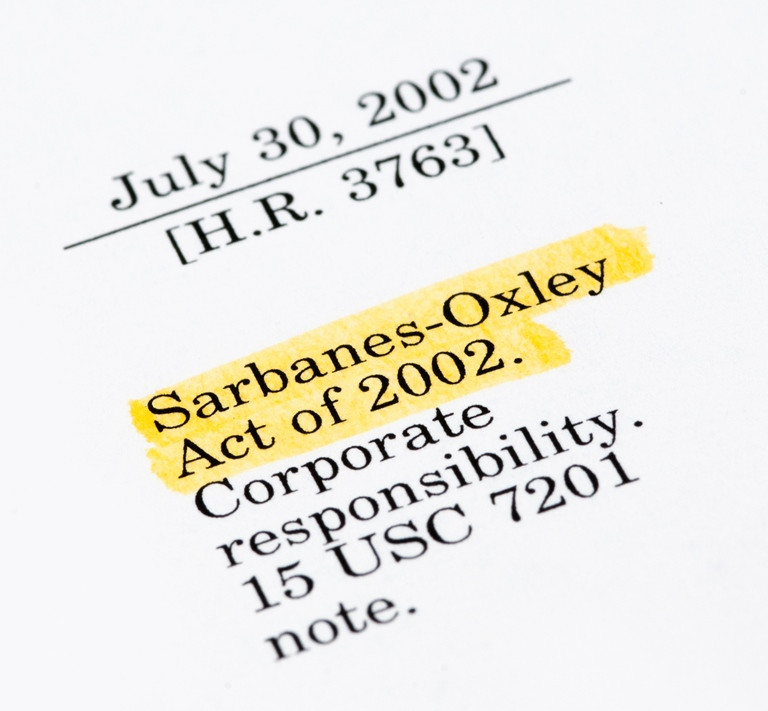
Enron Corporation, Tyco International, WorldCom… you don’t have to be an investor or an economist to know that these were three of the more notorious corporate scandals of the early 2000s. In 2002, in response to these and other malpractices the US Congress passed the Sarbanes-Oxley Act (SOX) by an overwhelming majority, with a view to strengthening corporate governance and financial reporting. The act aimed to restore investor confidence in US markets, which included not only American companies but also more than 1,300 foreign private issuers (FPIs) with reporting obligations to the Securities and Exchange Commission (SEC).
Hailed as the single most important piece of legislation on corporate governance, financial disclosure and the practice of public accounting since the Great Depression, SOX is also one of the most controversial business laws in US history. Critics deplore it as a rushed political response to high-profile corporate malfeasance that creates substantial net costs for issuers.
Xi Li examined the short- and long-term impact of SOX on shareholders of cross-listed FPIs. These are an important component of US markets, accounting for about 20 percent of the common stocks listed on the NYSE; the cross-listing offers companies increased visibility, prestige and trading liquidity. Their presence also enhances the status of US markets globally. As the FPIs are usually of higher quality than other issuers, cross-listings provide an easy and inexpensive way for US investors to diversify geographically. SOX appears, however, to drive FPIs away from US markets.
The researcher compared the US and home market stock returns of a sample of cross-listed FPIs with the FPI-free home country index returns around 23 events related to the passage and implementation of SOX. He created FPI-free home country indexes using all the firms in each foreign market, which are not affected by SOX. He found aggregate abnormal returns for cross-listed FPIs of -10 percent on average in the US and home markets, suggesting substantial destruction in the market value of FPIs during these events. The similar results in the US and home markets, which differ in market structure, investor sophistication and protection and liquidity, suggest that these differences and issues such as asynchronous trading cannot explain the results.
The results suggest that the costs of SOX compliance significantly exceed its benefits and reduce the net benefits of cross-listings. They also point to a need to consider both managerial and controlling shareholder agency problems in the studies of cross-listings.
While Li is not the first academic to highlight the issue, his work contributes to the literature by providing more ambiguous evidence of the detrimental impact of SOX. His analysis is more comprehensive and precise, and it examines the prevalence of controlling shareholders in cross-listed and “going-dark” (when a company voluntarily delists and deregisters itself to eliminate SEC reporting obligations) FPIs. Also, this research displays more complete reliance on SEC rules on registrations and deregistrations.
In the short-term, he found that firms with better accounting standards and more controlling shareholders were more likely to go dark, and firms relying more on US capital markets were less likely to go dark. Overall, the results suggest that SOX is more detrimental to better-governed FPIs.
Over the long-term, Li’s results suggest not only that SOX imposes net costs on shareholders in going-dark FPIs, but also that the net costs more than offset the extant net benefits from cross-listing for these FPIs.



